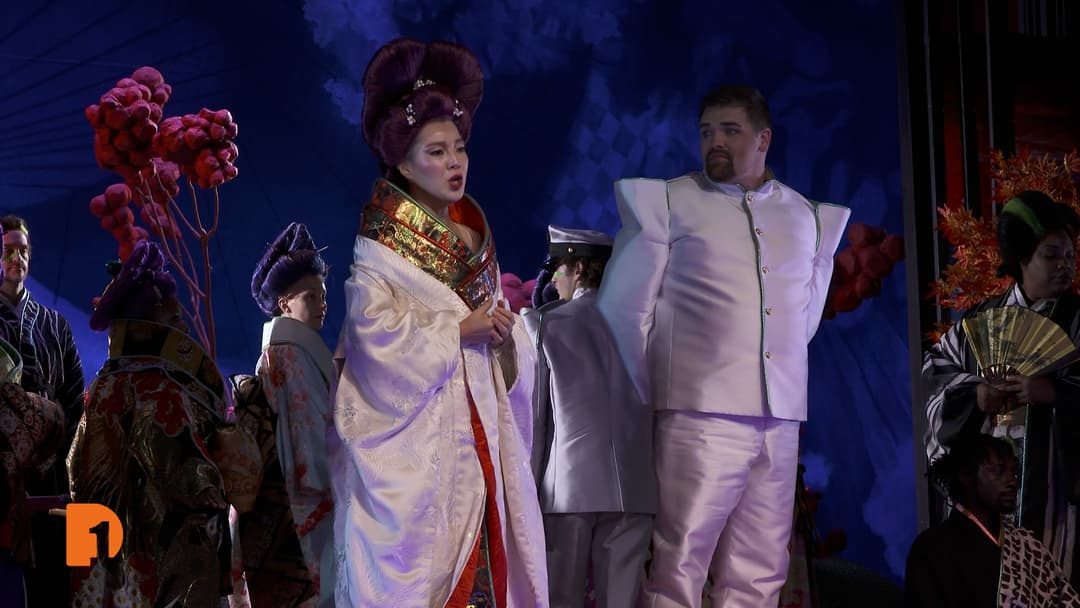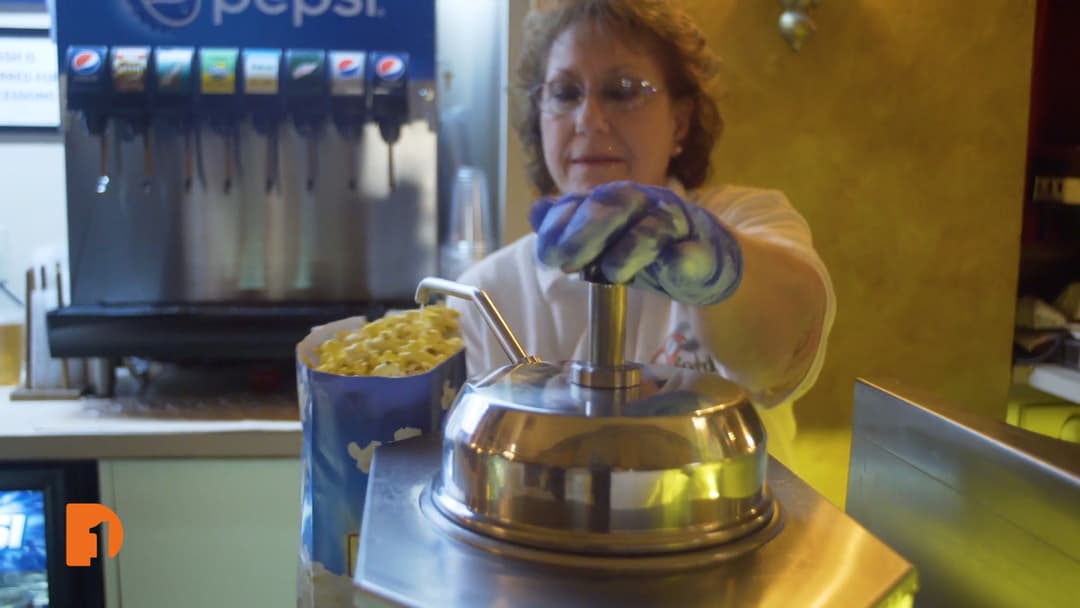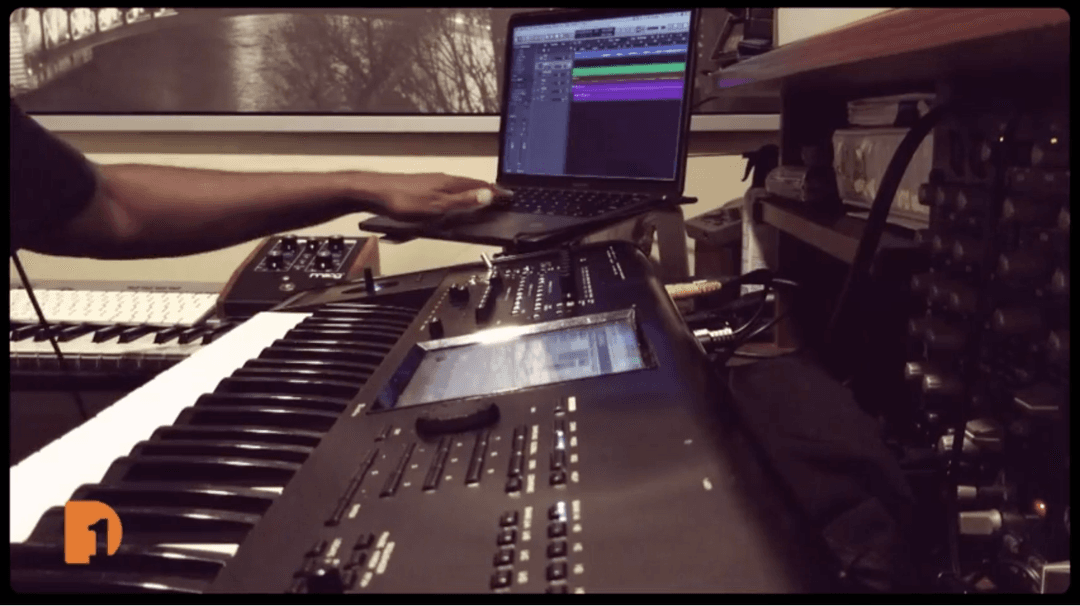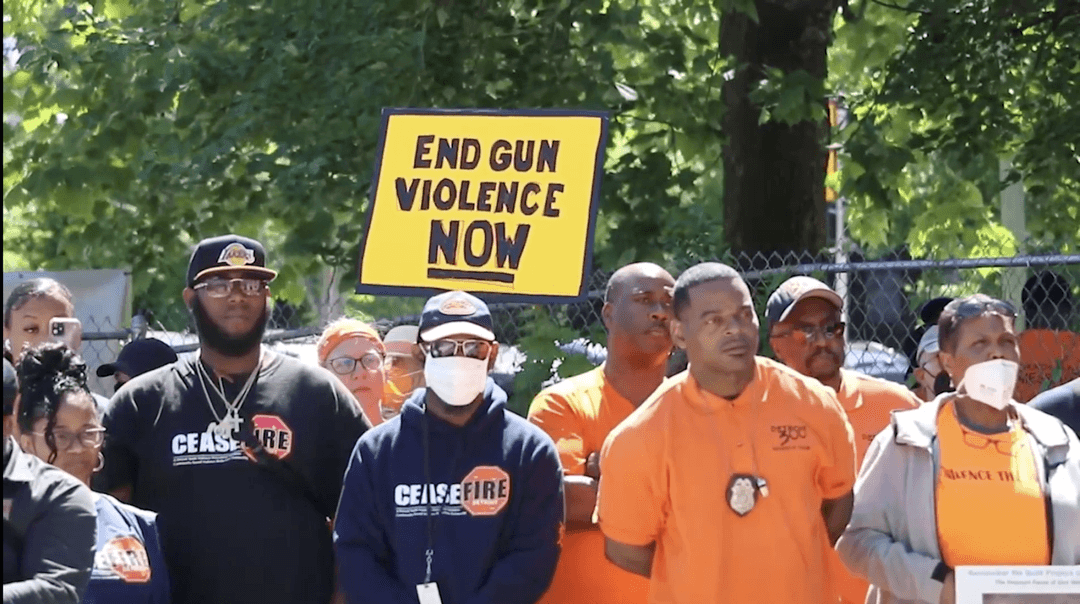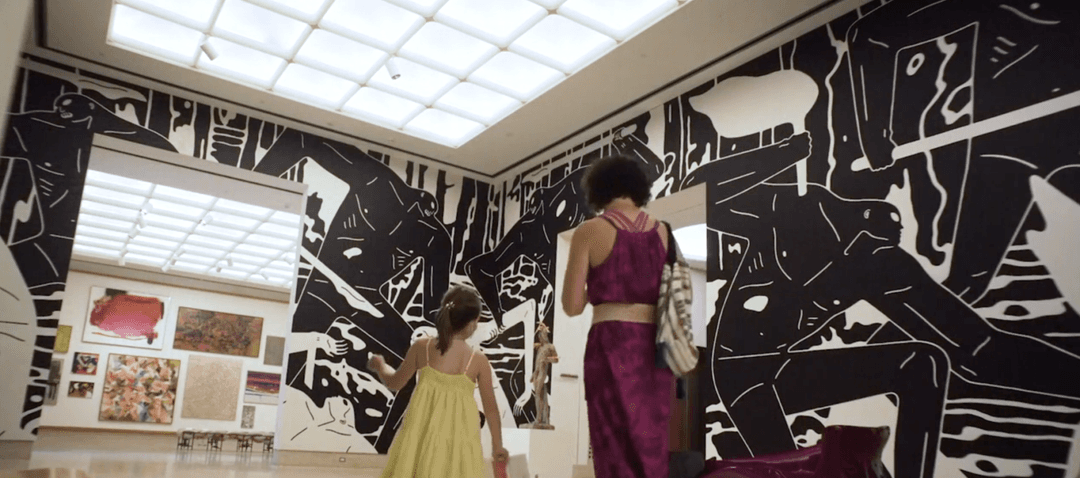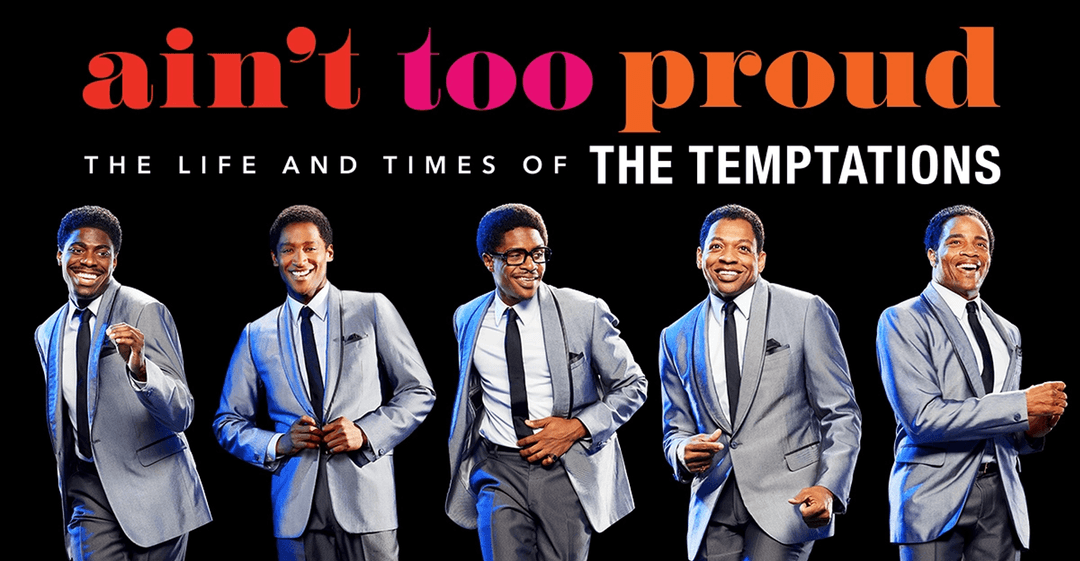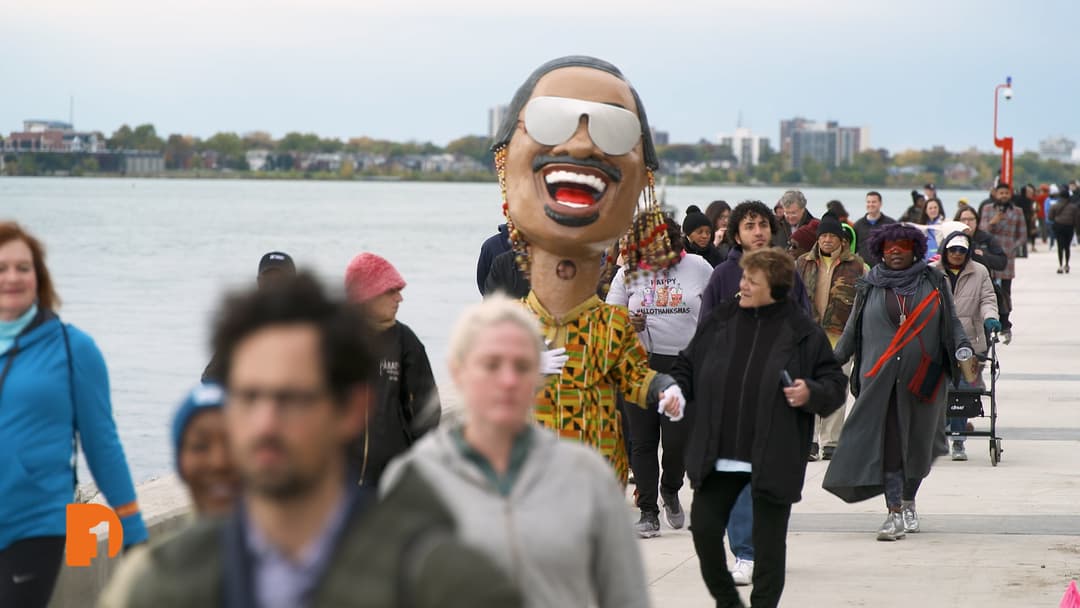Plowshares Theatre Presents ‘Hastings Street’ Musical About Detroit’s Black Bottom Neighborhood
Jul 24, 2020
How much do you know about Detroit’s segregated past? The Plowshares Theatre Company’s latest musical “Hastings Street” takes viewers back to a fictitious Detroit in 1949 where the Black Bottom neighborhood, a segregated Black community that sat where Interstate 75 does now, was on the cusp of being torn down. Following the Carson family, the musical’s writers John Sloan III and Kris Johnson create a tapestry that explores the lives of Detroiters at a moment when the city was rewriting the landscape and displacing those that lived there.
Before the Plowshares Theatre Company geared up to present a virtual concert featuring songs and scenes from the full musical, One Detroit’s Will Glover sat down with Sloan III, Johnson and the theatre’s artistic director Gary Anderson to talk about the musical’s creation, the history of the Black Bottom neighborhood, and the parallels the writers see in their story to what’s happening in Detroit today.
Watch Now:
[et_pb_video src=”https://www.youtube.com/watch?v=UlYKH3Bq66w&feature=youtu.be” _builder_version=”4.16″ _module_preset=”default” global_colors_info=”{}”]
Full Transcript:
Will Glover: So let’s get right into it. You guys are taking on the endeavor of creating a play and a virtual concert around Hastings Street, which has a lot to do with the highways that were built during urban renewal and the neighborhoods like black bottom that were destroyed in the process. So Gary, we’ll start with you.
Will Glover: Was this something that was in the works already before the world kind of got put on pause and also exploded at the same time? Or was this something that was sparked by everything that’s going on?
Gary Anderson, Artistic Director, Plowshares Theatre Company: Yeah. So this has been in the works for almost a year now, and we’re at a point now where we have a full script. We’ve got a full score and we were just actually ready to begin scheduling both a workshop and a concert.
Gary Anderson: We’re going to do the full all 20 songs in a live concert that we were looking at doing in July of the summer. And then we got hit with the pandemic. So we regrouped after a while and thought about how we could maybe salvage that idea and present it in a smaller format in a digital platform.
Will Glover: John, what was your initial thought when you started taking on this project?
John Sloan III, Writer, Plowshares Theatre Company: I really wanted to make sure we got it right. And as somebody that is from this community, left moved away, I lived in New York for a while. I was on tour for a while. I moved back home in 2017, and I really felt like there were a lot of parallels. And I still feel like there are a lot of parallels between what was happening in Detroit in the late 40s and early 50s and what’s happening in our community right now.
John Sloan III: And the way that we’re dealing with this, this struggle at the nexus of gentrification and redevelopment. And when you’re really thinking about building out, I personally hate the idea of a new Detroit because Detroiters have been here and my family’s been here. We’ve all been here and been working and been trying to deal with having a lack of access to opportunity and having a lack of access to education and redevelopment and still being one of the foundational communities in the world.
John Sloan III: Especially think about what we’ve contributed to the history of arts and of arts activism. You know, I wanted to make sure writing the book and helping to create these characters that we stayed true to our community and really helped to tell a story that was both unique to Detroit, but it had themes that were archetypal and universal.
Will Glover: So Kris, what was your first thought when you were approached to do this project?
Kris Johnson, Writer, Plowshares Theatre Company: It was really interesting is that Gary and I actually worked together on my first musical, Jim Crow Tears. Gary wrote the book for it, and I wrote the lyrics and the music. And after I completed that project, I was kind of thinking, if I ever did another musical, if I ever, you know, ventured into that world again, what would it be about?
Kris Johnson: And I started researching more. And this is, you know, almost a decade ago sort of researching Black Bottom and got really kind of fascinated by the history of Black Bottom. So when this came up, I mean, it was just incredibly exciting to be able to actually put to use some of that research and some of that history in Detroit. And I think it’s just a very, very, very timely piece and it kind of mirroring what John was saying.
Kris Johnson: I think we’re seeing a lot of the same themes that are starting to take place now in Detroit and this whole idea of this like push and pull with the white and black community. So I think it’s just a really important reflection on what was so that people understand that, you know, Detroit’s been here and will continue to be.
Will Glover: John, tell me a little bit about what the actual story is, how are we going to be taken through that history and experience it?
John Sloan III: So one thing that the three of us talked about from the beginning is making sure that we were creating a piece and creating a story that, while it was true to life, was not retraumatizing. There’s a diversity of black experiences and we didn’t want to see them get reduced down to archetypes. Right? And so what you’re going to do is people that come see Hastings Street are going to follow the story of the Carson family.
John Sloan III: And it’s one family who is established in the Black Bottom in Paradise Valley community. They have their own general store, and they want to try to see their business stay and grow and maintain. But all these things, all these forces are changing around them. In the middle of all that, the son of the family, Robert Jr. Bobby, comes home from World War Two as a Tuskegee airman and is dealing with all the things that war vets have to deal with.
John Sloan III: That struggle of PTSD. And so we try to use his struggle and the family’s struggle to mirror the parallel conversations that were happening in the city around what it means to take on responsibility, around what it means to come home in a world that’s changing and environment is changing around you.
John Sloan III: And then also balanced with just the joy and the energy that was the jazz and blues that came out of the 40s and 50s and using that from the oral sense to create a tapestry and world build really around what the city is and around what the family has to work through and try to overcome together.
Will Glover: So, John, there’s not just a play that’s being created, but what we’re coming up on first if I’m correct, is a virtual concert, so explain to me what that is, how it works, what people can expect to see.
John Sloan III: So what we’ve done is we’ve really curated a selection of songs and scenes that give the audience hopefully a wonderful understanding of the arc of the piece. And then there’s some dialog that happens inherently too. But we also have, you know, six amazing singers and actors that have lent us their talents.
John Sloan III: We have a band full of musicians that have lent us their skills and their talents. And so hopefully you’re going to tune in to this concert and you’re going to see as close to an approximation as we could get with people in different locations to what a staged reading concert would have been.
John Sloan III: And it’s an opportunity for the audience to sit back, relax, enjoy some wonderful new music and really be able to connect with characters that look like us and that sound like us, and that you’re going to hear your auntie and your uncle, right? Like you’re going to hear your cousins. That’s the goal is that we can reach out tangibly and say, I know this family like this family is my family. Their story is my story.
Subscribe to One Detroit’s YouTube Channel & Don’t miss One Detroit Mondays and Thursdays at 7:30 p.m. on Detroit PBS, WTVS-Channel 56.
Catch the daily conversations on our website, Facebook, Twitter @DPTVOneDetroit, and Instagram @One.Detroit
View Past Episodes >
Watch One Detroit every Monday and Thursday at 7:30 p.m. ET on Detroit Public TV on Detroit Public TV, WTVS-Channel 56.
Stay Connected
Subscribe to One Detroit’s YouTube Channel.
Catch the daily conversations on our website, Facebook, Twitter, and Instagram @detroitperforms
Related Posts
Leave a Reply
Your email address will not be published. Required fields are marked*


